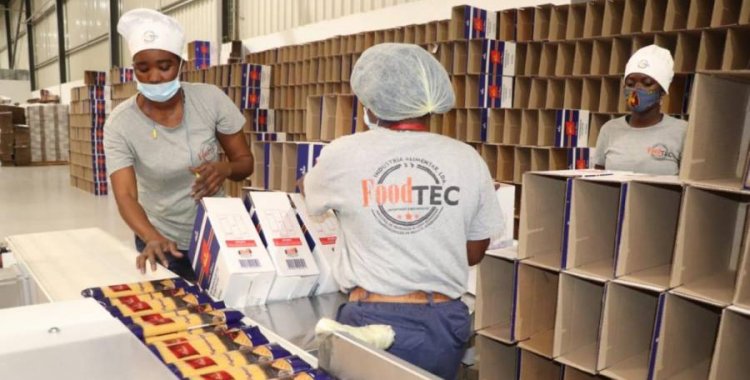The country currently has more than 660,000 square meters of commercial surfaces, which guarantees more than 20,000 jobs, according to what can be read on the website of the Association of Modern Commerce and Distribution Companies of Angola (ECODIMA).
With an estimated invoicing value of around 300 billion kwanzas, the trade and distribution sector in Angola is still supported by imports, given the difficulty of local production to respond to the demand of the domestic market, which makes the products more expensive. of the basic basket.
In the last 10 years, it was possible to observe the openings of many commercial surfaces across the country, with special emphasis on Luanda. The initiatives are commendable, but it is still common to see imported products on the shelves of many of these surfaces (which is not bad at all), which should arouse the Government's attention and create mechanisms that allow local production to meet the needs of the domestic market .
The opening of commercial surfaces implies a greater offer of products to customers and, consequently, an increase in import levels instead of domestic production.
The growth of the commerce and distribution sector is also allowing the entry of concepts that until recently were unknown to Angolan consumers, such as the Hard-Discount or Proximity Stores, a concept practiced so far by a single operator.
For 2021 and beyond, the expectation is that the sector's growth will keep pace, as the advance of the Covid-19 vaccine and the global economic recovery should favor business.
It's no use pointing the finger only to the executive here regarding the state of local production, a considerable number of operators in the trade sector still prefer to import products from the basic basket than to buy locally, especially those operators with foreign headquarters or that are subsidiaries of companies abroad .
Operators at the forefront of growth
As the sector's growth is evident, it is easy to see which operators are at the forefront of this phenomenon (growth).
According to a revelation by the Ministry of Industry and Commerce (MINDCOM) to Expansão newspaper in October 2020, Atlas Group, Angoalissar, Nobel Group, Angorayan, Alimenta Angola, Newaco Group, Africana Discount, Dimassaba, Selmata, Anseba, Rayan Investment, Ros" Bien Comércio, AMT (Angola), Zara General Trading, Heran are the biggest foreign business groups that dominate the trade.
Another operator that has had a lot of notoriety in recent months is Mega Comércio e Distribuição, which so far has a chain of more than 40 proximity stores.
These operators not only grow, they also have to deal with the constant drop in the "weight" of the kwanza against foreign currencies, always changing their cost structures as they always have to import.
An economy mostly dependent on imported products experiences serious problems when its currency is depreciated/devalued against the foreign currency of reference.








